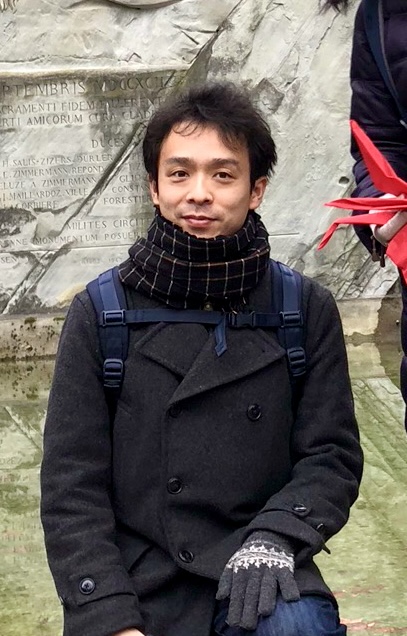ERC Starting Grant to study how memory is stored in the brain
DANDRITE Group Leader Taro Kitazawa has been awarded an ERC Starting Grant of EUR 1.5 million from the European Research Council for research into the molecular basis of neuroplasticity to answer the fundamental questions regarding how memory is stored in the brain.

Taro Kitazawa will carry out his project at DANDRITE and the Department of Molecular Biology and Genetics at Aarhus University, where he has been appointed Group Leader from the summer of 2022. He comes from a position as postdoc at the Friedrich Miescher Institute for Biomedical Research, Basel, Switzerland.
The ERC project will address a number of fundamental questions in neuroscience that focus on memory formation and consolidation at molecular levels.
Neuroplasticity underlies learning and memory formation, which allows for accumulation of knowledge. Abnormalities can be associated with various disorders including dementia and post-traumatic stress disorder (PTSD). There is an emerging view that a sparse ensemble of neurons, termed as memory engram cells, store specific memories. Memory engram cells are defined as neurons that are transiently activated and express immediate early genes (IEGs) during a learning experience and have undergone physical changes that can be reactivated upon memory recall experience. Importantly, artificial activation and silencing of engram cells result in artificial memory retrieval and deficit, respectively, and open for research approaches to unveil the mechanisms.
Revealing the molecular basis of neuroplasticity in engram cell formation is considered one of the central issues of memory research.
In a recent study, Taro Kitazawa and his colleagues at the Friedrich Miescher Institute for Biomedical Research (FMI) in Switzerland revealed a novel epigenetic and transcriptional mechanism regulating neuronal activity-dependent IEGs activation during somatosensory neuron maturation (Kitazawa et al., Nature Genetics, 2021). In the ERC project, Taro Kitazawa will take an advantage of his research expertise and further investigate how neuronal activity-dependent gene regulation underlies memory engram cell plasticity.
Application of state-of-the-art technologies
In his efforts to address this issue, Taro Kitazawa will carry out epigenetic and transcriptional profiling of memory engram cells using state-of-the-art high throughput sequencing genomics technologies. Engram cells will be isolated from the mouse hippocampus or neocortical regions, which store recent (in the order of days) or remote (in the orders of weeks and months) memory, respectively.
With this approach, he will firstly reveal the molecular underpinning of engram cell state shifts upon memory transfer from the hippocampus to the neocortical regions, which has been referred to as the systems memory consolidation. Furthermore, he will also focus on the heterogeneity of memory engram cells, and aim to reveal how a subset of engram cells can be functionally more relevant as compared with other subsets of engram cells. Notably, to efficiently answer these questions, he will even develop a novel genomics technology which enables whole genome history tracing, and overcome critical limitations of existing snapshot-type sequencing technologies.
The European Research Council (ERC) provides funding for ground-breaking international research projects of scientific excellence in all subjects and fields of research.
For more information, please contact
Taro Kitazawa, Ph.D.
Group Leader at DANDRITE (the Danish Research Institute of Translational Neuroscience) Nordic EMBL partnership
Associate professor at Department of Molecular Biology and Genetics
Aarhus University
Email: taro.kitazawa@fmi.ch or kitazawa-tky@umin.ac.jp
Group website: https://www.kitazawa-lab.com/
Taro Kitazawa is recruiting Postdocs, Ph.D. students and M.Sc. students. Those who are interested in neuroplasticity, memory, epigenetics or single-cell genomics, are more than welcome to contact him. The lab is starting in the summer of 2022.
